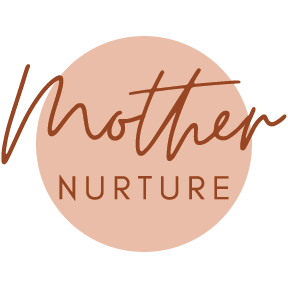Why "I Don’t Know" Might Be Holding You Back (And What to Say Instead)
Let me guess: You've said "I don't know" at least once today.
Maybe it was when your coworker asked how to handle that tricky client.
Or when your kid asked what’s for dinner (and cereal didn’t feel like a confident enough answer).
Or—more often than not—maybe it was when you asked yourself a big question like:
Do I actually want to keep doing this job?
What kind of summer do I want for my family?
Am I happy?
And your brain immediately responded with… “I don’t know.”
If this sounds familiar, you’re not alone. Saying "I don't know" is one of those throwaway phrases that we add in to buy ourselves more time to think. To delay or defer having to come up with something on the spot.
But while it might seem harmless, it might actually be costing you something.
The Hidden Impact of “I Don’t Know”
One of my clients shared something in a recent session that stopped us both in our tracks after I pointed out how often she said the phrase "I don't know". She said:
“After you pointed that out to me, I realized I’m saying ‘I don’t know’ all the time. And it’s not that I don’t know... it’s that I don’t trust myself to have the right answer.”
Cue the deep breath moment.
How many times have you used “I don’t know” as a buffer between the question and the discomfort of making a decision? Between the truth and the risk of getting it “wrong”? Between your own inner knowing and the fear that maybe, just maybe, it’s not right?
When we say “I don’t know,” we keep ourselves safe—but small.
We avoid failure—but also clarity.
We delay making a move—and stay stuck in the meantime.
Why Working Moms Say It So Often
If you’re juggling a career, a home, and a family, with 47 mental tabs open at once, it makes sense that your default might be “I don’t know.” You’re pulled in so many directions that the idea of making one more decision can feel… impossible.
Decision fatigue is real. Emotional labor is real. And the pressure to get it right (whatever that means) feels heavier when you're also responsible for the well-being of tiny humans.
So, when your boss asks you to take the lead on a new project, and your partner wants to talk about travel plans, and your child is melting down over a broken granola bar, it’s no wonder your brain goes blank.
But here’s the truth:
You do know.
You might need time to dig underneath the noise.
You might need support or space or more information to be able to get there.
But you do know.
What to Try Instead
If you’re noticing this pattern in your own life, here’s what I want you to try:
1. Replace “I don’t know” with “Let me think about it.”
This simple shift keeps the door open. It acknowledges that you will find an answer—you just need a minute. It builds self-trust, instead of shutting it down.
2. Ask yourself: “If I did know, what might the answer be?”
It sounds silly, but this one question has brought so many women back into their own power. It bypasses the panic and gently invites in curiosity.
3. Notice when you do know—and celebrate it.
Maybe you decided not to sign up for that weekend commitment, even though you felt pressure to. Maybe you picked a preschool, delegated that work task, or planned a low-key summer on purpose. Let that evidence stack up.
Because every time you recognize your own voice and honor it, you’re reinforcing the truth: You are wise. You are capable. And you know more than you think.
A Gentle Reminder
If you're in a season of life where you feel like you're constantly second-guessing everything—know this:
It doesn't mean you're broken. It means you're carrying a lot. And somewhere along the way, you may have learned that your voice doesn't matter as much as others. That it’s safer to stay unsure than to risk choosing something you can’t take back.
But you can unlearn that.
You can start hearing yourself again.
You can trust that you already hold so many of the answers you're looking for.
So, the next time you find yourself about to say, “I don’t know,” pause.
Take a breath.
Take a beat.
Take back your knowing.
Because you do know.
Want more tools like this?
Sign up for my newsletter where I share weekly encouragement, coaching tips, and real-life stories from working moms who are building careers, families, and lives that work.


